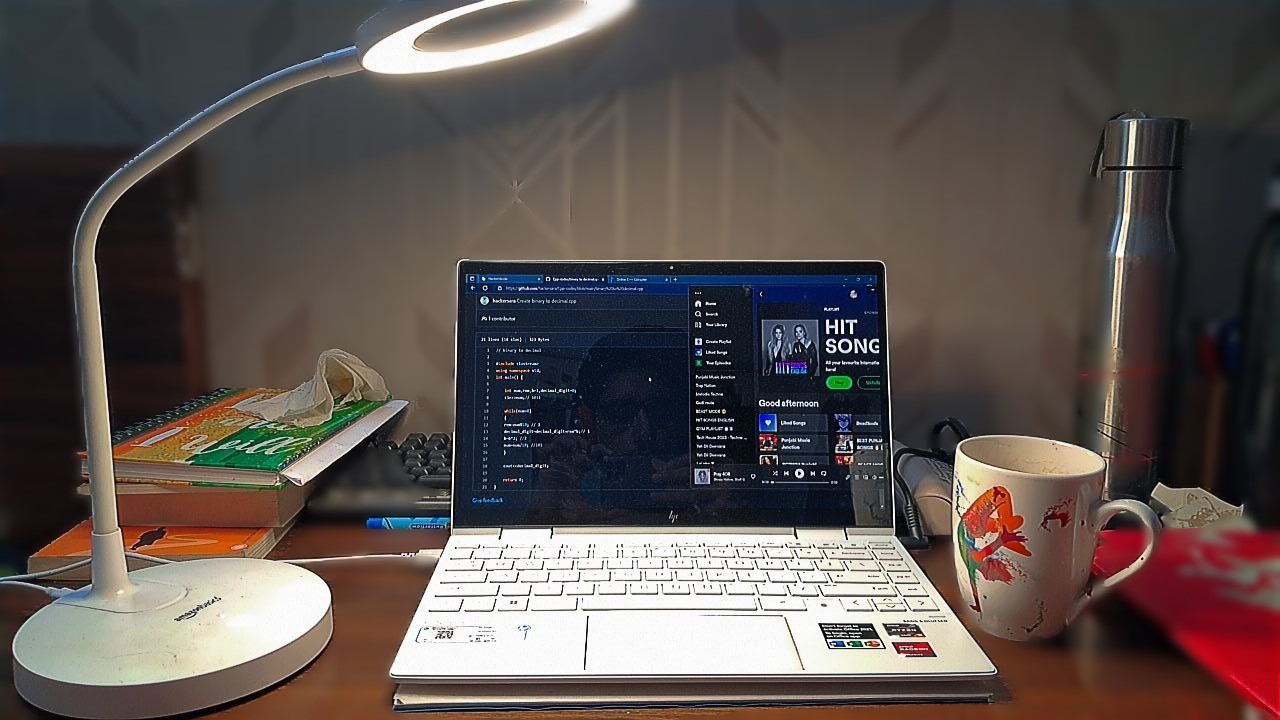I Have Been Motivating Myself to Work Hard to Achieve That One Target : The Struggles of Consistency in Programming
 Saransh Chaudhary
Saransh ChaudharyTable of contents
- Introduction
- The Emotional Rollercoaster of Motivation
- Understanding Procrastination
- The Challenge of Consistency
- The Programming Dream
- Self-Sabotage: The Biggest Hurdle
- Breaking the Cycle
- Setting Realistic Goals
- Dealing with Setbacks
- Seeking Support
- Balancing Learning and Doing
- Time Management Techniques
- Staying Motivated
- The Long-Term Vision
- Conclusion
Introduction
Have you ever had a dream, a goal that you've held onto for years? Something that kept you excited at night, only to find yourself struggling when it's time to actually work on it? That's exactly where I find myself with programming. I've been motivating myself to work hard to achieve this one target I've had for the last three years. But when I finally sit down to do it, I can't. I feel low, I start, and then I stop. Maintaining consistency while programming is hard, and it's like I'm my own biggest obstacle, making me the ultimate procrastinator.
The Emotional Rollercoaster of Motivation

Initial Excitement
When I first set my sights on becoming a proficient programmer, I was filled with excitement. The thought of creating something from nothing, solving complex problems, and contributing to the tech world was exhilarating. This initial burst of motivation had me diving into tutorials, books, and coding challenges.
The Reality Check
However, as time went on, the reality of the hard work and dedication required began to set in. The excitement started to wane, and I found myself struggling to stay consistent. The initial thrill was replaced with the daily grind, and maintaining that level of motivation became a challenge.
Understanding Procrastination
What is Procrastination?
Procrastination is the act of delaying or postponing tasks, often until the last minute. It's a common issue that affects many people, not just programmers. It can be a significant barrier to achieving goals and maintaining productivity.
The Science Behind Procrastination
Procrastination is deeply rooted in our psychology. It's often linked to our brain's struggle between the immediate rewards of avoiding work and the long-term benefits of completing tasks. This internal battle can leave us feeling stuck and unmotivated.
The Challenge of Consistency
Why Consistency is Hard
Consistency requires discipline and a strong sense of purpose. It's about showing up every day, even when you don't feel like it. For many, including myself, this is easier said than done. Life's distractions and the allure of immediate gratification can derail even the best-laid plans.
Common Distractions
In today's world, distractions are everywhere. Social media, streaming services, and even well-meaning friends and family can pull us away from our goals. These distractions can make it difficult to stay focused and maintain a consistent programming routine.
The Programming Dream

The Ideal Vision
In my mind, I see myself as a skilled programmer, working on exciting projects, solving complex problems, and making a meaningful impact. This vision keeps me motivated, but it also sets a high standard that can feel overwhelming at times.
The Harsh Reality
The reality of programming is often less glamorous. It involves long hours of debugging, facing frustrating errors, and sometimes feeling like you're not making any progress. This contrast between the dream and reality can be disheartening.
Self-Sabotage: The Biggest Hurdle
Identifying Self-Sabotage
Self-sabotage is when you undermine your own goals and progress. This can take many forms, such as procrastination, negative self-talk, and setting unrealistic expectations. Recognizing these behaviors is the first step to overcoming them.
The Inner Critic
We all have an inner critic, that voice in our head that tells us we're not good enough or that we'll never succeed. This inner critic can be incredibly damaging, leading to self-doubt and a lack of motivation.
Breaking the Cycle
Small Steps to Big Changes
Change doesn't happen overnight. It's about taking small, manageable steps every day. These incremental changes can lead to significant progress over time. It's important to celebrate these small wins and recognize the progress you're making.
Building a Routine
Creating a routine can help establish consistency. This might involve setting aside specific times each day for programming, creating a dedicated workspace, and minimizing distractions during these periods.
Setting Realistic Goals
The Importance of Small Wins
Setting small, achievable goals can help build momentum. Each time you accomplish a goal, no matter how small, it boosts your confidence and motivation. These small wins can add up to significant progress over time.
SMART Goals
SMART goals are Specific, Measurable, Achievable, Relevant, and Time-bound. Setting SMART goals can help provide clarity and direction, making it easier to stay on track and maintain consistency.
Dealing with Setbacks
Embracing Failure
Failure is a natural part of the learning process. Instead of fearing failure, it's important to embrace it as an opportunity to learn and grow. Each setback can provide valuable lessons and insights that can help you improve.
Learning from Mistakes
Every mistake is a chance to learn. By analyzing what went wrong and how you can do better next time, you can turn setbacks into stepping stones toward success.
Seeking Support
The Power of Community
Being part of a community can provide support, motivation, and accountability. Whether it's a local coding group, an online forum, or a study group, connecting with others can help keep you motivated and on track.
Finding a Mentor
A mentor can provide guidance, support, and valuable insights based on their own experiences. Having someone to turn to for advice and encouragement can make a significant difference in your journey.
Balancing Learning and Doing

The Theory vs. Practice Dilemma
It's important to balance learning new concepts with applying them in practice. Too much focus on theory can lead to information overload, while too much focus on practice can lead to burnout. Finding the right balance is key to maintaining consistency and making progress.
Applying Knowledge
Putting what you've learned into practice is essential. This might involve working on personal projects, contributing to open-source projects, or solving coding challenges. The more you apply your knowledge, the more confident and skilled you'll become.
Time Management Techniques
Pomodoro Technique
The Pomodoro Technique involves working for a set period (usually 25 minutes) followed by a short break. This can help improve focus and productivity by breaking work into manageable chunks.
Time Blocking
Time blocking involves scheduling specific blocks of time for different tasks. This can help ensure that you dedicate sufficient time to programming and other important activities, while also preventing procrastination.
Staying Motivated
Inspirational Quotes and Stories
Reading about the experiences and successes of others can be incredibly motivating. Inspirational quotes and stories can provide a boost of motivation and remind you that you're not alone in your struggles.
Personal Motivational Techniques
Everyone has different things that motivate them. It might be setting rewards for yourself, listening to motivational music, or visualizing your success. Finding what works for you can help keep you motivated and focused.
The Long-Term Vision
Keeping the End Goal in Sight
It's important to keep your long-term goals in mind. Reminding yourself of why you started and what you hope to achieve can provide motivation and direction, especially during challenging times.
Celebrating Milestones
Celebrating your achievements, no matter how small, can help keep you motivated. Each milestone is a step closer to your ultimate goal, and recognizing your progress can provide a sense of accomplishment and encouragement.
Conclusion
Consistency in programming is a challenging journey, but it's not impossible. By understanding the obstacles, setting realistic goals, and
Subscribe to my newsletter
Read articles from Saransh Chaudhary directly inside your inbox. Subscribe to the newsletter, and don't miss out.
Written by

Saransh Chaudhary
Saransh Chaudhary
Hey there! I'm a computer science student on an exciting journey, not just in academics but also in the grand school of life. I'm diving deep into development and sharing my daily discoveries and knowledge right here on Hashnode. Join me as I navigate through the coding world and beyond! 🌟